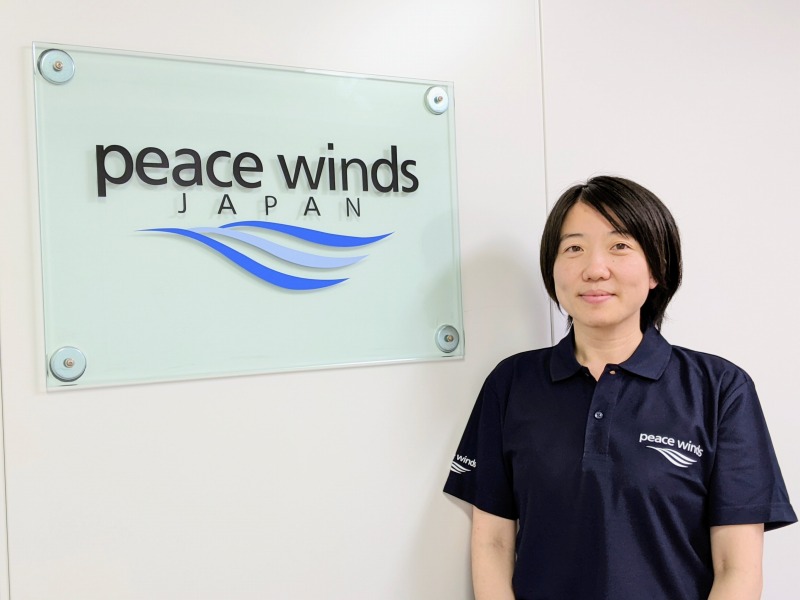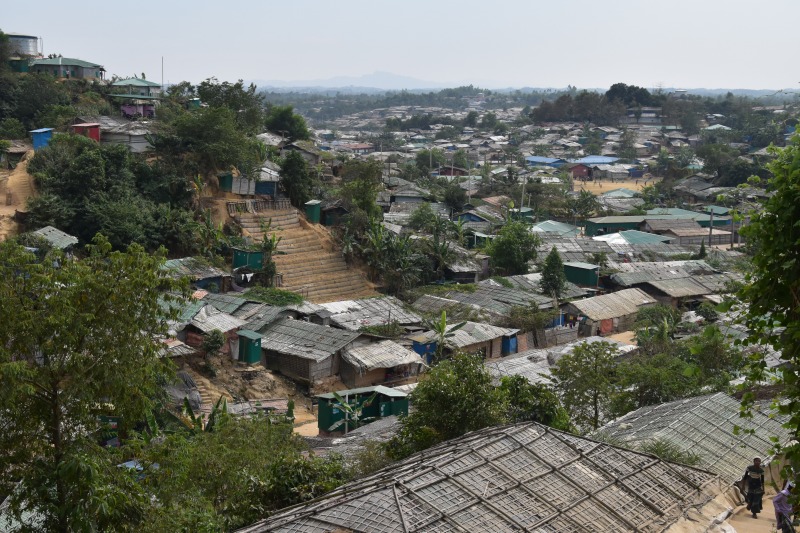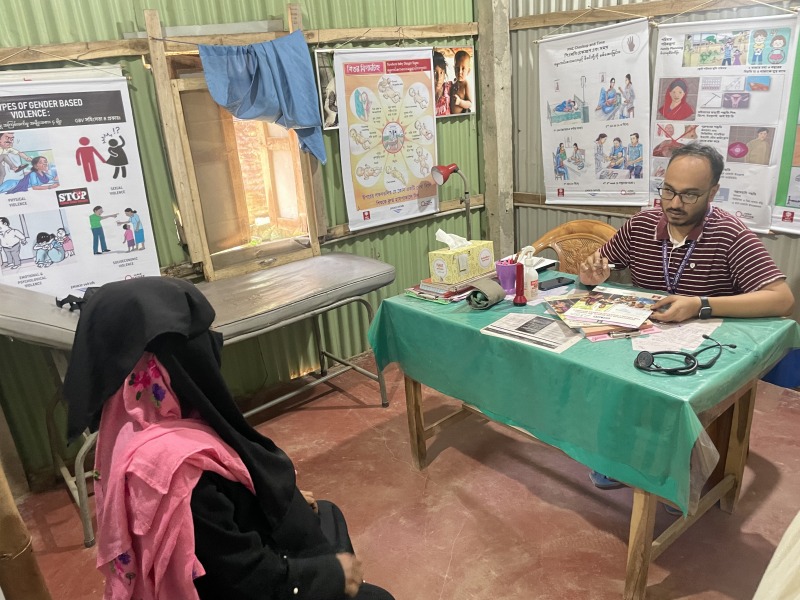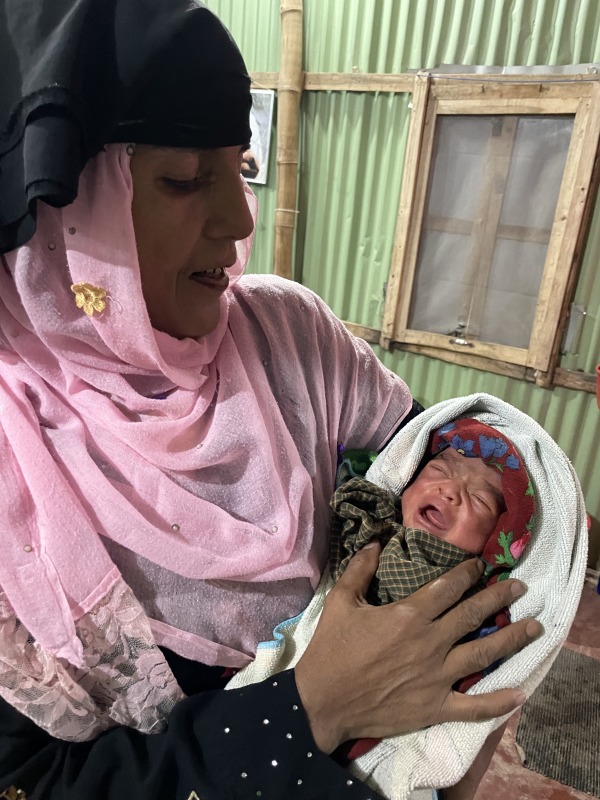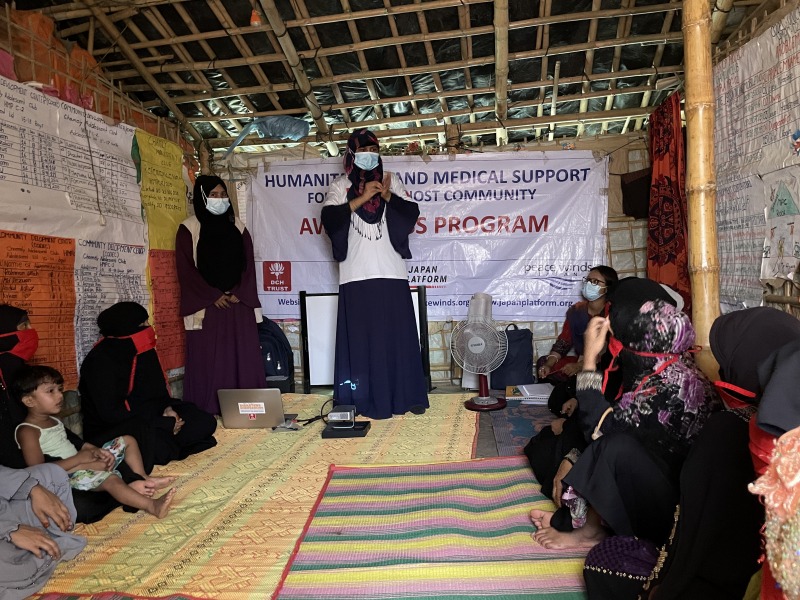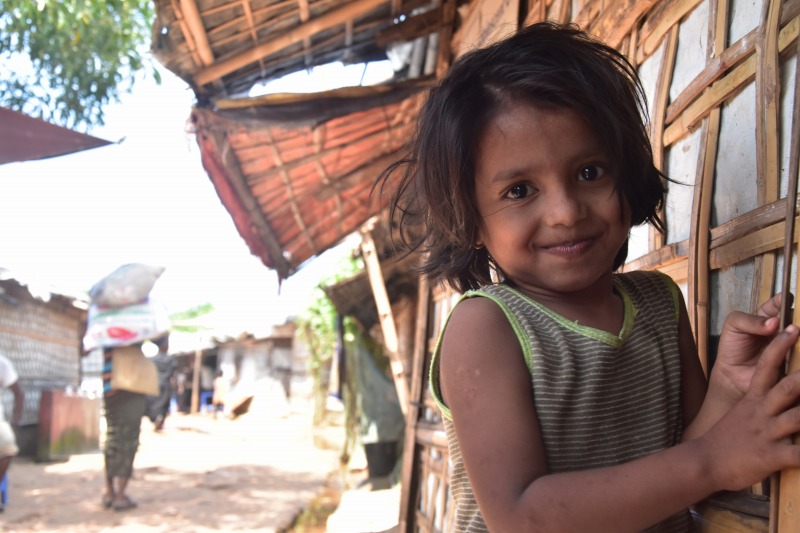World Refugee Day 2023: an Interview with Yuko Yamamoto about Support for Rohingya Refugees in Bangladesh
In honor of World Refugee Day on June 20, Peace Winds would like to bring you the stories of some of our staff members who work to support refugees around the world. They spoke with us about their work with Peace Winds and their hopes for the future.
Yuko Yamamoto lives and works in Bangladesh for Peace Winds’ project providing medical care to Rohingya refugees.
–What kind of work do you do in Bangladesh?
Yamamoto: We work in Cox’s Bazar in southern Bangladesh, and we are supporting Rohingya refugees who have escaped from Myanmar. Most people in Myanmar are Buddhist; however, the Rohingya, who are a minority ethnic group largely comprised of Muslims, were persecuted as illegal immigrants by the Myanmar government.
People had been evacuating to neighboring Bangladesh since 1978, but the situation worsened in 2017. A large-scale mop-up operation occurred in Myanmar, resulting in approximately 740,000 people fleeing to Cox’s Bazar and becoming refugees. Since then, there have been new influxes and births within the camps, and the total number of refugees is about 960,000 (as of April 2023). It is said to be the largest refugee camp in the world.
–What kind of assistance does Peace Winds provide?
Yamamoto: Healthcare support. At the beginning of 2017, we started a mobile clinic together with a local organization, the Dhaka Community Hospital Trust. After that, in 2018, we opened a clinic to provide basic medical services, including childbirth support, and this spring, the clinic celebrated its fifth anniversary.
In addition to providing medical services, we are also conducting activities to raise awareness about preventative methods and hygiene so that people living in the camps can manage their own health. As refugees age, they have to think about not only infectious diseases but also chronic diseases such as high blood pressure. I teach them what they can do to prevent illness, such as healthy eating and exercise. We also provide health education for local community members in Bangladesh, not just the refugees.
–So you are supporting not only the refugees but also the host communities near the camps?
Yamamoto: Yes. Consideration for the host community is very important because the Rohingya issue is complicated by political and ethnic divisions. The Myanmar government claims that the Rohingya people are “illegal immigrants from Bangladesh” and does not grant them citizenship. Cox’s Bazar, on the other hand, is a poor place outside of the city. If nearly 1 million refugees flow into it, it will be difficult to respond both economically and in terms of infrastructure. At the beginning of the crisis in 2017, there were tensions between the two sides, with complaints about aid being provided only within the camps, and saying that clearing land for refugee camps was “disrupting nature.”
–Is this kind of tension inevitable when a refugee camp is built in a poor area?
Yamamoto: That’s a difficult question. We can’t draw any definitive conclusions about the consequences of the camp being built, but people complain about things such as the well drying up. Now, partly due to a Bangladesh government policy, projects benefiting refugees are not permitted unless there is also a benefit for the host community. Although this does not mean that we will completely eliminate the conflict, we don’t want things to feel unfair to the host communities, so we are giving utmost consideration to the harmony and development of the entire region.
–How do you think Rohingya refugees are thinking about the future after the coup d’état in 2021?
Yamamoto: It is said that there are three general options for refugees: (1) return to their own country, (2) settle in a refugee camp, or (3) move to a third country, but none of these options are easy for the Rohingya. The Myanmar government does not grant them citizenship, and the Bangladesh government is also somewhat reluctant to welcome refugees. It is also not easy for them to emigrate to a third country without an ID card. We are always thinking about what kind of support we can provide in such a difficult situation.
Unfortunately, security in the camp has deteriorated a lot lately. Since the beginning of this year, we have received more frequent reports of shootings and fires. I don’t know if that kind of security situation is affecting people’s decisions, but I’ve heard that if someone suddenly disappears, they may have crossed over to a third country through an unofficial route. It may be one of the options that people believe will give them a better life.
–How do you feel about the work you’re doing here?
Yamamoto: How can we bring these people hope? What goals should I set for myself? This is something I always think about when implementing a project. I don’t have a clear answer yet, but I believe that developing our training programs is one of them. Through the ongoing training of health volunteers for refugees and host communities, as well as the health awareness activities they carry out, I see gradual changes in people’s attitudes and the smiles on their faces, and I know we’re moving in the right direction.
I also get a glimpse of a new form of community in the way refugees and volunteers from the host community are interacting through business activities. However, these types of interactions are hard to carry out in large camps where there are so many people whose movement is restricted. Because this is such a long-standing problem, we believe that what is needed is not only temporary support, but also opportunities for large-scale changes in the way the community interacts.
